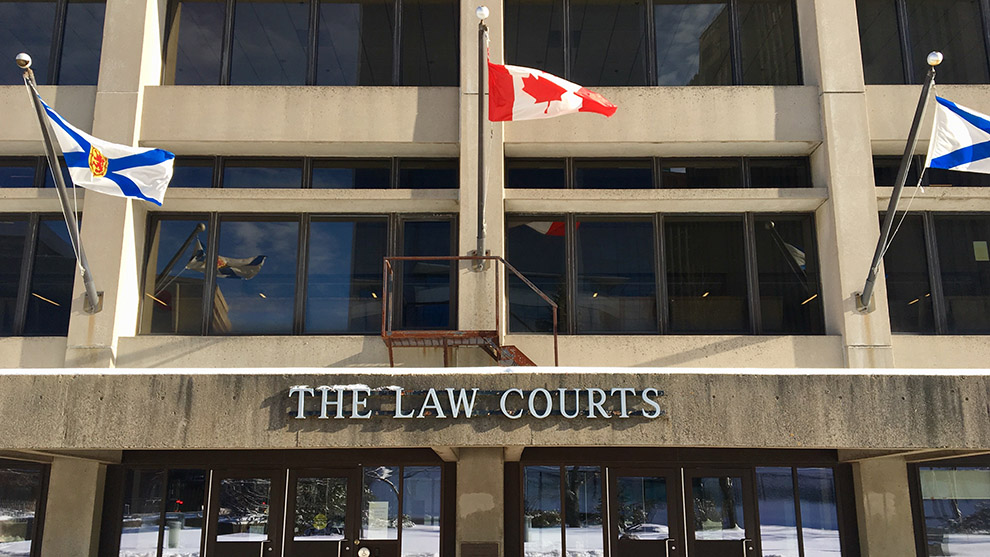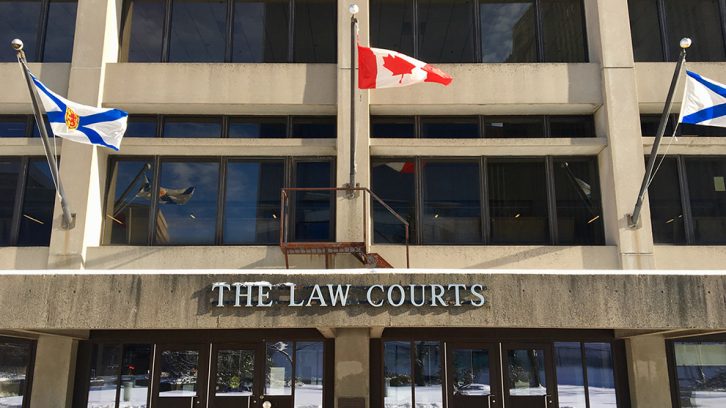Courts
Mi’kmaq man guilty of refusing a breathalyzer appeals sentence
Nova Scotia Court of Appeal hears arguments in Leroy David Denny case

caption
Nova Scotia Supreme Court
caption
Leroy Denny’s case was heard in the Court of Appeal in Halifax on Friday.A sentence handed down to a Mi’kmaq man convicted of refusing a breathalyzer didn’t take into account the fact that he’s Indigenous, the Nova Scotia Court of Appeal heard Friday.
Leroy David Denny was in the courtroom in Halifax as his lawyer, Stephen Robertson, argued that the sentencing judge “failed to consider relevant factors.”
As a result of this, Robertson asked for Denny’s sentence to be reconsidered, particularly a 30-month driving prohibition. Robertson also pointed out that a significant amount of time has already passed since the crimes occurred, dragging out how long Denny has to wait to complete his sentence.
In 2015 Denny, from New Glasgow, was pulled over twice by police and refused to take a breathalyzer test both times. He pleaded guilty to two counts of refusing a breathalyzer and was sentenced in Pictou provincial court in April 2016 to pay $10 as a fine for each count, as well as $3 in victim surcharges. Justice Del W. Atwood also sentenced Denny to a one-year ban from driving in relation to each of the charges.
Atwood noted that Denny is Mi’kmaq and a member of the Pictou Landing First Nation. He referred to the Gladue sentencing principle, which states that Indigenous status should be considered whenever possible when sentencing offenders. This is an attempt to correct the over-representation of Indigenous peoples in the Canadian justice system.
Last year, the Crown appealed this sentence, claiming it was unfit. During that appeal, Justice James L. Chipman handed down a new sentence. He ordered Denny to pay $2,200 in fines, placed him on a 12-month probation period that includes regular counselling and handed him a 30-month driving prohibition.
In appealing this sentence on Friday, Robertson argued that Chipman did not consider the Gladue principle in his decision. Robertson told the three-member panel, made up of Justices Duncan R. Beveridge, David Farrar, and Edward Scanlan, that his client’s case was affected by “who he was and the community that he came from.”
Beveridge said Denny was “penalized” when he was sentenced to a 30-month driving suspension.
“It seems that it should have been treated really as a first offence, even the second. So 12 months would really be the appropriate time for a driving prohibition,” said Beveridge, calling the sentencing “illegal.”
Crown attorney Kenneth Fiske agreed that Denny should be given leave to appeal the 30-month driving prohibition.
The panel is expected to release a written decision later this year.

